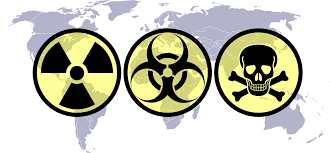
Contents:
Introduction
Primary Sources
‘One Man in his Time’ – Reprise
The Development of Penicillin
Penicillin in the Soviet Union
Borodin’s First Mission
Borodin’s Second Mission
Bacteriological Warfare
The Communist Threat
Ominous Undercurrents
After the Defection
Florey and Chain Redux
A Real Defection?
* * * * * * * * * * * *
Introduction
In 1984 Christopher Andrew and David Dilks famously described intelligence history as the ‘missing dimension’ of historical inquiry. I borrow their phraseology to represent biological (mainly bacteriological) espionage as the missing dimension of Cold War rivalries. A vast amount of print has been dedicated to exploring the protection and purloining of secrets concerning atomic weaponry, but I can find very little on the subject of bacteriological warfare. The re-release of the Soviet scientist and defector N.M. Borodin’s memoir last summer prompted me to perform an intensive investigation into the topic.
I have to declare that I find much about the tale of N. M. Borodin’s defection very bogus. Readers will recall that I devoted a Special Bulletin (see https://coldspur.com/special-bulletin-the-conundrum-of-n-m-borodin ) to a brief analysis of the memoir – originally published in 1955, and this year re-issued unchanged – complemented by some references to the biologist that I found in Guy Liddell’s Diaries and in sundry other archives. I promised to return to the subject, and this report consists of the results of my studies into miscellaneous articles, CIA reports, and books on the history of penicillin and bacteriological warfare, integrated with other archival material, and the exploitation of a closer reading of One Man in His Time.
I suspect that I am only scratching the surface of what appears to be a complicated series of events. I hope that this report stimulates further discoveries.
Primary Sources
- One Man in His Time by N. M. Borodin (1955, re-issued 2024)
- The Mold in Dr. Florey’s Coat by Eric Lax (2005)
- Howard Florey: Penicillin and After by Trevor I. Williams (1984)
- Ernst Chain: Penicillin and Beyond by Ronald W. Clark (1985)
- A Higher Form of Killing by Robert Harris and Jeremy Paxman (2002)
- Britain and Biological Warfare by Brian Balmer (2001)
- A Suspicion of Spies by Tim Spicer (2024)
- Cold Drugs, Circulation, Production and Intelligence of Antibiotics in Post-WWII Years by Mauro Capocci (Journal of History of Medicine, 2014)
- Nikolai Mikhailovich Borodin: the little-known person involved in the USSR penicillin project by E. V. Sherstneva (Probl Sotsialnoi Gig Zdravookhranenniiai Istor Med. 2022 May)
- CIA Vault: www.cia.gov/readingroom/docs/CIA-RDP83-00415R001300030006-7.pdf
- CIA Vault: www.cia.gov/readingroom/docs/CIA-RDP82-00457R002100040005-3.pdf
- Daniele Cozzoli,’Penicillin and the European response to post-war American hegemony: the case of Leo-penicillin’ in ‘History and Technology’, June 2014, at http:/ / dx.doi.org/ 10.1080/ 07341512.2014.902232
- The Spy Who Came in From the Mold by Anthony Rimmington (https://medium.com/@t.rimmington/the-spy-who-came-in-from-the-mold-n-borodin-the-first-russian-biological-defector-to-the-west-516d8dfa03b3)
- The Diaries of Guy Liddell (National Archives: KV 4/470 & 4/471)
- Personal File for Goronwy and Margaret Rees (National Archives: KV 2/4603-4608)
- Personal File for George and Ada Eltenton (National Archives: KV 2/2166)
- Biological Warfare Sub-Committee Minutes, 1947 & 1948 (National Archives: DEFE 10/261-262)
- Letters from Ernest Chain to the Soviet Trade Delegation, 1948, from the Wellcome Foundation (https://wellcomecollection.org/works/aqmau24k)
- ‘The case for a state-owned penicillin factory in this country’, 1948, from the Wellcome Foundation (https://wellcomecollection.org/works/ycu4j9hg )
- ‘The Industrial Production of Penicillin’, 1948, from the Wellcome Foundation (https://wellcomecollection.org/works/kvrua3z3 )
- Letter by Richard Davenport-Hines to the Times Literary Supplement (August 2, 2024)
‘One Man in his Time’ – Reprise
Borodin’s memoir is a very strange composition. The brief Foreword he wrote in 1955 appears unembellished and uncomplemented in the new edition, apart from a not very helpful Introduction by the BBC sage John Simpson. In the Foreword, Borodin asserted that he wrote the book in English, which he had spoken only since 1945 (when he was being trained for a mission to the United Kingdom), and continued: ‘. . . nevertheless I like to use this tongue for thinking, speaking and writing equally well with my native Russian’. That was a strange and bold claim to make, and the phrasing itself is a little clumsy: ‘with a proficiency equal to what I have in my native Russian’, perhaps? And it would be a rare individual who would gain that expertise in those few years, no matter how broadly exposed he or she was to the English language.
No mention of a translator, or even an editor, appears in any acknowledgment. Yet the text, to me, often shows the habits of a competent, but slightly careless, translator from the Russian. For instance, it reads (p 331): “One night his deputy, Natradze, myself and Katkovsky, earmarked for the function of chief of penicillin production, were discussing a project of the Ministry’s scientific council.” A more elegant writer would lay it out as follows: “One night, his deputy, Natradze, Katkovsky, earmarked. . . . . , and I . ..” (“Myself” is reflexive, and inappropriate as the subject of a sentence, and “I” should be the last nounal item.) Second-rate English writers (and even those who are frequently regarded as first-rate, such as Anthony Powell) frequently get this wrong, as they display obvious discomfort distinguishing between the proper use of ‘me’ ‘myself’, and ‘I’. A native Russian speaker would be much more sensitive to the inflections here: the Russian form of this construction is an unusual ‘we with Natradze and Katkovsky’.
Other errors caught my eye. ‘A verbal report’ (p 192), when ‘oral is meant: that is a very common mistake among English speakers. I would expect a Russian to be more careful. Borodin writes about ‘bottles of “Molotov’s Cocktail”’ (p 286), which again suggests that the phrase has been provided by a translator not familiar with this aspect of warfare. An enormous gaffe occurs on page 121: “Vyshelessky started to work with this terrible bacteria.” It should, of course, be the singular form, ‘bacterium’. No scientist worth his salt would allow such a clumsy malformation to appear on the page. [I was dismayed, however, to read, in Howard Florey: Penicillin and After, by Dr. Trevor Williams – who worked in Florey’s laboratory during the war – the following ugly sentence: “The bacteria he named Micrococcus lysodeikticus and the dissolving agent. . . . was called lysozyme.”] There are other such examples to be found, which leads me to believe that his manuscript was in fact written in Russian, and then handed over to an anonymous translator.
It is not clear to me why this deception (if, indeed, it is such) was carried out, but I also have reservations about the authenticity of his text. Overall, Borodin comes across as a hard apparatchik, a loyal servant of Stalin, who is complicit in the denunciations, violence and executions that occur through the tribulations of that era – the atrocities, the famines, the purges, the exiles, the liquidations. Occasionally, however, he protests, but is miraculously allowed to get away with it. It is not until the final pages that he yields completely and decides to defect. Yet whole aspects of his life are overlooked. We can learn from other sources that he had a wife and family in Moscow, but they are never mentioned, and his interactions with women are very coyly described. The facts of his life up to World War II can obviously not be verified, but then matters take an odd turn. Borodin gets very cavalier with his chronology, and very selective in his reporting.
I tried to date the many events, from World War II onwards, to which Borodin does not give precise information. He participated in the deportations of (primarily) Germans from Elenendorf to Central Asia – which can be verified as occurring in 1941. The next event he describes is his award of the Lenin Prize in Moscow, on a cold winter’s day, when he remarks that the Soviets have just freed Warsaw. (That places it in January 1945.) Yet he states that the award was given by the Chairman of the Presidium of Supreme Soviet, Shvernik. (Shvernik was Chairman from March 19, 1946 to March 15, 1953, however.) He is appointed factory director in Baku, where it is clear the war is still raging. He describes soldiers ‘going to the front’, and his friend Antonov being burned in a tank fighting against the Germans. There are further adventures in Baku, with episodes involving illicit black-market activities based on penicillin stolen from his factory, and then he is recalled to Moscow, where Mikoyan informs him he is to be sent to England.
Yet Borodin is not ready for the mission. He has started learning English, but is not proficient enough, and has to take more lessons. Furthermore, he reports a long delay in screening, and getting his passport approved. Nevertheless, he flies with Anita, a cipher clerk, via Finland and Sweden and arrives at Croydon Airport. (The date is not given, but in his official self-supplied biography to the authorities, he wrote that it was in September 1945.) He describes a New Year’s Party at the Soviet Embassy. (It must be January 1946.) He writes nothing about the circumstances of his invitation to stay in Oxford, but remarks that Gouzenko’s defection (September 1945) was a hot topic of conversation. He refers to a newspaper that had an article titled ‘Who invited Doctor Borodin?’ on its front page, but does not say which newspaper, or when. [I have not been able to track this down.] Nor does he indicate who might have concluded that he was on some possibly illicit information-gathering mission.
Borodin is recalled in December 1946, and soon gets into trouble for comparing Soviet techniques for manufacturing penicillin unfavourably with those in the West. His friend Parin is arrested, and later executed, for wanting to share information with the Americans (as opposed to merely stealing it from them.) Borodin receives a warning, and is urged to reinforce the claim that penicillin was a Soviet invention. Nevertheless (one can work out it is July 1947 now), he is entrusted with one more mission – to go to the USA in an effort to acquire American know-how and equipment. He travels there with two assistants, cannot gain export licenses, gets into some trouble again for not denouncing one of his assistants, and is then ordered to England to try there instead. He arrives in time for Christmas (1947).
By now, Borodin is starting to get fearful about the purges taking place in Moscow. He is anxious about the fate of his assistant Utkin, who has been recalled, and whom he failed to denounce. The Ministry of Medical Industry is abolished. At the beginning of August 1948, a session of the All Union Academy of Agricultural Science is held, at which a purge takes place. When he is asked in London to report on the performance of a nervous visiting technician, Gerchikov, who is not a party member, Borodin funks out. When he receives the recall himself, he decides to defect. Without apparently having contacted the British to verify that he will be accepted, he sends his letter to the Ambassador the very next day, leaving him with no clear exit strategy.
What I find extraordinary is the blatant, flamboyant, and unnecessary letter that Borodin claimed he wrote to Ambassador Zarubin on August 27, 1948, which he brazenly describes as ‘High Treason’. (The text appears on pages 350-352 of the book, and, in a very bizarre and provocative presentation, is the sole item in a National Archives file, FO 1093/552, that bears no outward mention of Borodin.)The criticism of the USSR, and implicitly, Stalin, was a reckless move that would immediately have brought in Sudoplatov’s ‘Special Tasks’ force to hunt Borodin down and kill him. Among defectors, only Vladimir Orlov was allowed to get away with such an insult, since he promised to stay silent about Stalin’s pilfering the Spanish gold if the vozhd left Orlov untouched in the USA. If Borodin really wanted to defect with a chance of survival, he would have slunk quietly away in the night, picked up a new identity, never shown his face again, and been protected by the British authorities. But that did not happen, and that is what perplexes me.
Moreover, how did this matter of penicillin manufacture become so controversial?
The Development of Penicillin
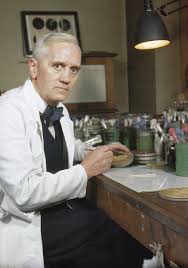
Every schoolchild knows that Alexander Fleming discovered penicillin, and many are aware that he, Howard Florey and Ernst Chain (who collaborated in the project of purifying, stabilizing and testing it, and developing manufacturing processes for it) were awarded the Nobel Prize for physiology and medicine in 1945. But few have probably learned of the feuds, conflicts, and arguments that bedevilled the relationships between the trio. These were to do with professional rivalries, contrasts in temperament, behaviour and methodology, suspicions of secret dealings, and failures to give credit. Furthermore, as the project of scaling up production advanced, some deep philosophical divisions emerged as to whether the availability of penicillin should be universalized, and about the role of commercial interests in reaching that goal.
Alexander Fleming had discovered penicillin in 1928 when working at St. Mary’s Medical School in London. He had noticed that some colonies of staphylococci had degenerated after being contaminated by some spores of mould. Yet he did not conceive of the potential of this finding, that it might contribute to the manipulation of a powerful antibiotic agent, and he thus continued his research into lysozyme, an enzyme that had almost no efficacy against deadly microbes. He wrote up the experience, and spoke about it, but he was not a great writer or communicator, and the opportunity to pursue the phenomenon further was ignored for several years.
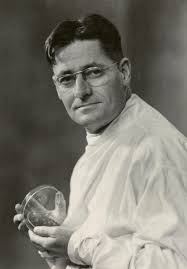
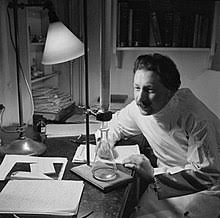
It was not until 1935 that serious study of the phenomenon began. In that year Howard Florey, then Professor of Pathology at the Dunn School of Medicine at Oxford University, was introduced to Ernst Chain, a biochemist who was working under Sir Frederick Hopkins at Cambridge University. Both men were immigrants: Florey was a second-generation Australian, and Chain a German Jew, with a Russian father, who had escaped from Hitler’s Germany in 1933. They differed in temperament: Florey was down-to-earth, overall very patient and a good man-manager, but prone to brusque behaviour on occasions. Chain was highly-strung, insisted on Prussian-style disciplines, was protective and jealous, and felt much more alienated in the country where he had landed than did Florey, who had been able to make a much more deliberate choice of destination. Chain accepted Florey’s invitation to join him in Oxford. At first, they co-operated well: Florey recognized that he needed the talents of a chemical biologist to complement his work. Moreover, Chain brought an excellent laboratory technician with him, Norman Heatley, whose imaginative design of equipment to refine the process of assaying penicillin has in my estimation been undervalued in the story of success in proving that penicillin was both safe and effective.
Yet Florey and Chain soon fell out. While they made steady progress in refining the amount of penicillin that could be used to fight infection, while ensuring that it did not have deleterious effects on other tissue, their philosophies on making it a compound for broad distribution clashed. Heatley began working for Florey: Chain was jealous. Chain urged Florey to approach an American firm for mass production: Florey was not yet confident that predictable yields could be harvested from the mould, and its therapeutic value had not been proven. In June 1941, Florey and Heatley left for the USA on an exploratory mission: Chain did not learn about it until the last minute, and he was justifiably upset. Chain, working from his German background, believed strongly that penicillin should be patented. The Medical Research Council (supervising the whole operation) looked askance at commercialization, and financial rewards for pure researchers. Florey agreed with that policy. When Florey returned to Oxford in October 1941, he found the laboratory in somewhat of a shambles under Chain’s management.
The development of penicillin in mass amounts was a missed opportunity by the British. In an important paper written in 1948 ‘The case for a state-owned penicillin factory in this country’, almost certainly written by Florey, but appearing in the Chain archive *, the author complains about the lack of entrepreneurialism among British pharmaceutical companies, with the result that the Americans forged ahead. He also criticizes the Ministry of Supply for continuing to pursue the surface culture method of production when the Americans had shown that deep culture fermentation was far superior. Their methods had also accelerated the deployment of penicillin taken orally rather than through injection. The author concluded by recommending that the government counter the US dominance by funding a native penicillin factory for an outlay of £120,000.
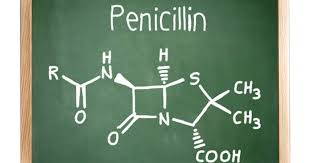
The essence of the story is that the Nobel Prize was awarded to Alexander, Florey and Chain in October 1945, but by then, Florey and Chain were not on speaking terms, with Chain expressing strong grievances that his contribution had not been properly recognized. Both of them, however, resented the exaggerated claims that Fleming made about his achievements, belatedly seeking more of the limelight – and gaining it in the Press. These tensions and rivalries would play out fully in the complex political world of the Cold War. By 1945, however, penicillin had played an enormous role in saving lives in the battlefields of World War II (ironically against syphilis as much as gas-gangrene), and American companies had invested heavily in manufacturing techniques and plant to produce vast quantities of the drug. Why an antibiotic that surely was of benefit to the whole of mankind suddenly became a technological secret that required confidentiality is an accident of deteriorating political relationships between the USA and the USSR.
[* It seems that this unsigned paper has been attributed to Chain, since his biographer Ronald W. Clark describes his push for a state-owned factory, and Daniele Cozzoli comes to the same conclusion in directly citing the words as Chain’s. The author of the piece refers to himself as ‘the author’ but also mentions Florey and Chain in the third person. The style, context, and tenor of the piece, however, all point to Florey’s authorship, an assertion that would appear to be reinforced by the fact that the author refers to his recent work with Mrs. Philpot in converting aqueous solutions of penicillin to a dry state. Flora Philpot worked alongside Florey, and co-authored papers with him. Moreover, with his mind clearly focused on his Italian and Russian projects at this time, it is highly unlikely that Chain would have been concerned about the British government’s constructing its own penicillin factory.]
Penicillin in the Soviet Union
In fact, tensions between the UK and the USA over the production of penicillin had already arisen, with claims that the Americans had hi-jacked the whole area from the Britons. Conflicts between commercial opportunism, the seeking of patents, and possible anti-trust collusion in the United States were apparent. In 1943, the United States imposed a ban on any material relating to the chemistry of penicillin, a prohibition that remained in force until the end of 1945. All this occurred at a time when the USA was an ally of the USSR, and there were many politicians on both sides of the Atlantic who throughout this turmoil advanced greater collaboration with the Communists. At the Teheran Conference at the end of November 1943, Churchill, Roosevelt and Stalin agreed to a joint American-British mission to Moscow by two scientists from each country, so that they could discuss a number of medical advances, primarily penicillin, with their counterparts. Florey according left for Moscow with his assistant Dr. Gordon Sanders (who had worked in the Middle East in deploying penicillin) on December 23. They took with them phials of the agent, and several reports, but did not arrive in Moscow until a month later.
The story of penicillin in the Soviet Union is predictably murky, what with the Politburo’s control of information, and its need to control the dissemination of facts, and to emphasize the virtues of communist methodology in science. The history consists of a bewildering account of overlapping institutes and organizations, all entrusted with the Party’s indelible correctness of mission, but all tripping over each other as responsibilities are shuffled. Borodin’s memoir provides some possibly reliable insights, and more recent research has rescued him from the obloquy of being a treasonous non-person for several decades, and has thrown some more realistic light on the political struggles and rivalries of the 1940s and 1950s. The Soviets had enjoyed some access to the breakthroughs of Florey and Chain in the early 1940s. Before further publication of successes was banned in 1943 (under the necessary policy of trying to prevent Hitler’s scientists from learning about the discoveries), copies of The Lancet would have been distributed to neutral countries such as Switzerland and Sweden, and both the Nazis and the Soviets would have been able to pick up valuable information. My correspondent Edward M. provided me with the valuable information that the spy George Eltenton, ostensibly with a mission to acquire nuclear secrets from Oppenheimer, had in 1943 been approached by his handler Peter Ivanov to try to gather information about penicillin.
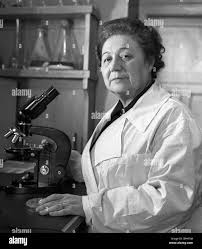
The case of Zinaida Yermolyeva is characteristically ambiguous. As Head of the Department of Microbial (or Bacterial) Chemistry in Moscow, she was awarded the Stalin Prize in 1943, and two Orders of Lenin, for her pioneering work in penicillin production. Yet some doubts have been recorded concerning her integrity. Borodin met her shortly before his first visit to England, described her as ‘ambitious’, and noted that, while her first husband had been arrested twice, and her second had died in prison having been arrested as a ‘wrecker’, Yermolyeva herself remained untouched. Borodin learned from the secretary of the Party in the institute (a pretty girl named Ksana) that Yermolyeva had won Stalin’s prize for the discovery of ‘Soviet’ penicillin, but when her department sent sample ampoules of the compound to the Central Committee, they actually contained American penicillin, since it was of a purer strain. Yermolyeva had also made herself famous (and maybe notorious) by writing a paper in which she described how she had swallowed a solution containing the bacterium vibrio cholerae, and how she had survived owing to the ingestion of penicillin crustosum.
Florey was not impressed with Yermolyeva when he met her in 1944, stating that he believed she owed the success in her career more to her charm than her scientific ability. He did not think much of her production facilities, and did not trust her accounts of success with penicillin crustosum – thus perhaps echoing the substitution story. He was more impressed by what Dr. Gause had developed at the Institute of Tropical Medicine, including the production of gramicidin, although it turned out to be too toxic for systemic use, but useful for local infections. Florey concluded that the Soviets knew virtually nothing about penicillin, but he exchanged his vials of penicillin with them for some ampules of gramicidin.
The CIA has published information on the Soviet penicillin project, but it is largely reliant on what they learned from Borodin itself. Borodin told them that Yermolyeva’s strain of penicillin was probably not crustosum, but notatum. He confirmed that the batch submitted to the Academy of Medical Sciences probably had American penicillin substituted. (The Soviets, rather perversely, seemed to think that penicillin had been an American discovery, whereas the Americans had contributed mostly to production breakthroughs.) Between 1943 and 1945 Yermolyeva struggled to scale up any serious production capability. She could provide penicillin only in a soluble form, as freeze-drying capabilities for creating powder were not available. Borodin told Smirnov, the People’s Commissar from the Meat and Dairy Industry, that the process for creating the antibiotic was flawed, but his advice was ignored. For a couple of years, the potential for co-operation between the Soviet Union and the USA/GB remained solid. Florey even recommended a mission by the Soviets to visit production capabilities in the UK, but his suggestions came to nothing. In the summer of 1945, however, Mikoyan, the Minister responsible for the penicillin project, realizing that the project was in danger, became fearful about failure in this critical endeavour, and summoned Borodin to Moscow. Equipment would have to be purchased from the Allies.
Borodin’s First Mission
Considering that he was in the UK for fifteen months (September 1945 to December 1946), Borodin was very reticent about what he was up to. In his memoir, he mentions Oxford, encounters with English Communists, parties at the Embassy, even a disturbing article in the newspapers about his dubious activities, but that is it. I relied upon Trevor Williams to provide some initial depth. He wrote that Borodin came to work in Florey’s department, and that he, Florey, and Philpott ‘published an account of an antibiotic, tardin, produced by Penicillium tardum’, but that ‘it proved to have no clinical value’.
That was not all that Borodin achieved, however. E. V. Shertseva’s 2022 profile states that ‘he systematically and continuously transmitted materials on penicillin and other antibiotics to the Motherland – using various methods’. She goes on to write that, through the Trade Mission in the UK and Professor Sarkisov, he built good relationships with Florey and Chain. Borodin acquired ‘secret’ materials on penicillin, which he sent through diplomatic mail to USSR. This strongly suggests that Borodin was betraying his hosts by committing espionage. Indeed, after the Nobel Prize was announced (in October 1945, shortly after Borodin’s arrival), Florey and Chain, no doubt flushed with their success became more welcoming, but still allowed only perusal of some material. Shertseva reports that Borodin photographed such documents overnight, and wanted his name concealed from any article that was published. He sent an important letter to Mikoyan, dated April 23, 1946, with appendices: Mikoyan kept the information to himself, treating the knowledge as power. Borodin also managed to secrete to Moscow two new strains of penicillin, notatum and streptomycin.
Shertseva had access to some of the letters that Borodin wrote from Oxford. In a bold foray, he explicitly criticized his Soviet bosses, telling them of their inferior approach and organization towards producing penicillin. In April 1946, he informed them that they did not understand the essential chemical heterogeneity of the substance. The Soviet form was very labile, and thus soon perishable. Meat-peptone broth (on which Borodin had apprenticed himself) was no longer used as a culture for preparing the antibiotic in the United Kingdom. He outlined a seven-point plan for getting the Soviet project on track, which included the acquisition of technology from the USA. When the Minister of Medical Industries, Tretyakov, received the news, he accepted it, but did not dare tell Stalin, as it was unwise to suggest to the leader that Soviet science was again lagging in a vital sphere. The Ministry had been founded only in the autumn of 1946, and in December of that year the USSR Council of Ministers decreed that all penicillin production was to be placed under Tretyakov.
The fact that Borodin was given such extended hospitality throughout 1946 is a bit surprising, since both the USA and the UK were tightening up on the confidentiality of information on such strategic programmes. The Gouzenko defection had occurred just before Borodin’s arrived, and the blatant and overt attempts of Soviet spies to gain access to atomic secrets alarmed many politicians. In November 1945, the procedures for producing penicillin were labeled as state secrets. Yet many scientists were still strongly sympathetic to the Soviets, and may have concealed their sharing of information from the authorities. In the USA, as late as January 1946, as Williams reports, a group of eminent scientists launched a fund to provide the Soviet Union with materials and know-how to construct a plant capable of producing 80 billion units of penicillin a month, matching the output of a typical large American factory. It even had the notorious useful idiot Joseph Davies on the committee. By September, however, the project was fast collapsing because of the political climate.
When Borodin returned to Moscow in December 1946, he found a very tense situation. He describes how the ideology of Soviet supremacy in science was rampant: hence describing the discovery of penicillin as being a British achievement was heretical. Nevertheless, Borodin’s multiple bulletins from the United Kingdom had found favour with Stalin. In April 1947 the Council of Ministers approved Tretyakov’s proposal to create an All-Union Scientific Research Institute of Penicillin and Other Antibiotics, and, despite some questions about his loyalty, Borodin was appointed its head. Meanwhile, his ex-colleague, Parin, had been arrested, and then executed, on the charge of being an Anglo-American spy. The Ministry was in perpetual crisis, and in great danger of not meeting its production targets. Dismissals, demotions and purges were rife. Borodin was not afraid to speak his mind to Mikoyan about the dysfunctional approach to the project. With this fraught background, he was sent to the USA on a second mission, to acquire plant, and learn more about production techniques.
Borodin’s Second Mission
When he left, in late summer 1947, for the USA, Borodin was accompanied by two colleagues, named Utkin and Zeifman. The need for a triad derived from the requirement to keep surveillance on possible untrustworthy elements. Two characters might plot silently, or exchange counter-revolutionary ideas. If a third person was there, and heard about such whispers from the first person, while the second person had not reported them, the second was as guilty as the first. And, indeed, Borodin got into exactly that trouble, when Utkin’s anti-Soviet behaviour was criticized by the dedicated Stalinist Zeifman, who then threatened Borodin for not informing on Utkin. Borodin managed to deceive Klimov, the head of the Communist Party in Amtorg, the trade organization, about what went on in the denunciations.
The USA mission fizzled out just as this conflict heated up. The team initially received a warm welcome in New York, and then visited many universities, colleges, and industrial firms. But all the negotiations had to be made through Moscow, with approval coming from the capital. Moreover, the atmosphere had changed. New legislation made the selling of plant to the Soviet Union almost impossible, with penicillin another strategic technology just behind atomic power and weaponry. The companies they encountered (primarily Merck) all declined any opportunity to do business: no export licenses were granted. In December 1947, Borodin was ordered to stop all negotiations and to go to the UK instead.
Borodin came to Britain, as representative of Technopromemport, and as one of a triad again, the watchful Zeifman still keeping an eye on him, alongside a man called Chernyarski. He found a more responsive chord with one of his old allies from his first mission, Ernst Chain. Chain had the advantage of being able to speak Russian (from his father), and displayed some enthusiasm for a joint venture with the Soviets. Borodin conducted long discussions with Chain on the purification, crystallization and assay of penicillin, and by July had prepared memoranda on the production in the Soviet Union of a project to build a very large plant for the production of penicillin and streptomycin. As Williams writes: “The longer-term intention was that, for a substantial consideration, Chain should visit Russia from time to time to advise on the building of the plant and thereafter act as a consultant on an annual basis.”
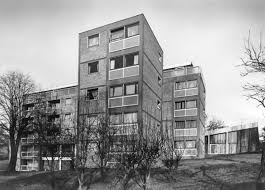
The details of this agreement are quite extraordinary. It involved a premium of £35,000 (an enormous sum for those days) to be paid on signing, with an annual fee of £3,000 to follow during the course of the project. A draft of Chain’s initial proposal, in manuscript, written in early 1948, lies in the Chain Archive at the Wellcome Institute, as well as typed letters to the Soviet Trade Delegation in Highgate. Chain is careful to inform Borodin that ‘I am not aware of any regulations in this country which could be an impediment or the signing of this agreement’. The implication would be that the agreement was completed on July 20, since Chain follows up with a request for expenses on August 17, referring to the agreement of the previous month. The following day, aware that Borodin and Zeifman are due to return to Moscow very shortly, he provides a full inventory of all the information on manufacturing methods that he has compiled. Whether any money changed hands is uncertain. Neither is it clear how the nature of this agreement might have rebounded adversely on Borodin, although Chain’s correspondence in September suggests that he is unaware of the defection. All that Chain’s biographer, R. W. Clark, writes about it is that ’Borodin fell out of favour, and the project was still-born’.
This was quite a dramatic turn of events, and one wonders how much the authorities knew of the arrangement. An undated report from Chain’s archive suggests that the scientist was quite open about his recommendations for helping the Soviets to construct a modern factory. Trevor Williams suggests that there were no objections, but how much did the JIC and MI5 know about the project? The legality might have been true in respect of any lack of conflict with his obligations at Oxford, as he was about to depart from England, with leave of absence, to take up an appointment in Rome at the Istituto Superiore di Sanitá. At this stage, the Communists in Italy exercised a lot of power, and were in regular contact with Moscow. Yet what sounds like an underhand deal to have Chain handsomely remunerated by the Soviets for undertaking activities that surely would not have gained government approval is quite shocking. When the Americans later heard about it, they took a strong view, and Chain’s trafficking with eastern bloc cost him his US visa.
The turmoil in Moscow intensified. As I recorded above in my description of his memoir, Borodin apparently began to feel intensely worried. He felt responsible that his colleague Utkin had been recalled, and probably executed. A purge in the Academy of Agricultural Science took place in August. A visit by a suspect functionary, Gerchikov, to London required Borodin to listen to his presentation at a meeting, and report whether he was ‘on message’. And when Borodin was ordered to sail on the next boat, he feared for his life, decided to defect, and wrote those two extraordinary letters. At least, that is his version of events.
Guy Liddell’s Diaries, on the other hand, suggest that British Intelligence had been well aware of what Borodin was up to for some time. In a startling observation on February 4, 1948, after a Joint Intelligence Committee meeting on Bacteriological Warfare (the first time that this subject had been recorded in Liddell’s Diaries, I believe), Liddell writes that Borodin has been reported as buying up penicillin equipment. It is obvious that a close watch is being maintained on him. Moreover, William Hayter, chairman of the JIC, asked about the possibility of Borodin’s becoming a defector. What the motivation behind this was is not clear. Presumably, the Committee considered that Borodin possessed valuable information about the Soviet Union’s progress in penicillin production and bacteriological warfare. While it is clear now that they were several steps behind in many ways, that may well have been a story that Borodin had started to spin for them as he considered his next steps, and contemplated and compared a future life in England with an ominous recall to Moscow.
But how did the penicillin business become transformed into an issue of bacteriological warfare?
Bacteriological Warfare
It is difficult to determine the links between penicillin production and bacteriological warfare from a study of the relevant literature and archival material. The biographies of Florey avoid any inspection of his post-war role in research into offensive weaponry. The accounts of the committees that discussed the need and prospects of such capabilities refer only obliquely to the contributions of Florey. Indeed, the whole history of bacteriological warfare activity in the UK is couched in very cautious terms, and the details are scattered across multiple archival sources.
What is significant is the fact that Florey, from the time soon after his arrival in the United Kingdom when he worked at London Hospital, developed a strong professional relationship and personal friendship with Paul Fildes, who was the prime activator of bacteriological warfare research during and after the war. Fildes had come to prominence when Sir Michael Hankey had recommended to the Committee of Imperial Defence (CID) in 1936 that ‘an expert official body’ be set up to consider the offensive and defensive aspects of bacteriological warfare. Ironically, Edward Mellanby, the Secretary of the Medical Research Council (MRC), who had been such a significant influence in getting Florey appointed to the chair at Oxford in 1935, refused to have anything to do with any project that invoked medical research for destructive processes. This stance opened the door to Fildes, who became a leading member of what was initially called the Microbiological Warfare Committee, later the Bacteriological Warfare Committee (BWC).
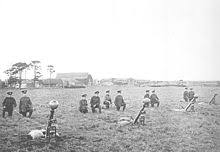
When Hitler warned of ‘secret weapons’ in 1939, the Committee for Imperial Defence feared that he might be referring to biological (i.e. bacterial or viral) armaments, and the very secret laboratory at Porton Down, Wiltshire, was set up in 1940 under Paul Fildes. Fildes was considered the country’s expert in bacterial physiology, focusing on bacterial nutrition, but he was also an energetic champion of the need for offensive research, since the deployment of bacteriological ‘bombs’ of some kind might be the only effective method of retaliation against an attack. He interpreted what were admittedly very loose guidelines given to him by the Committee, and selected anthrax as the most suitable pathogen to deploy, even visiting the United States to review progress, and to prod George Merck, the head of the War Research Service, into more vigorous research.
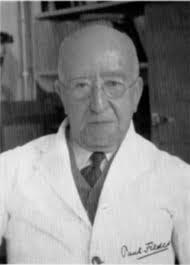
Yet Fildes soon encountered opposition from a truly startling figure – Victor, Lord Rothschild, another member of the BWC, who represented MI5 on the Committee. In 1943, Rothschild voiced his strong concerns about Fildes’ surpassing his remit, and not taking into consideration the security hazards of storing anthrax ‘bricks’, which might be exposed to enemy bombing attacks. Rothschild even described Fildes’ attitude as ‘ghoulish’. In response, Fildes regarded Rothschild as ‘uninformed’, interfering with his plans. Rothschild continued by elevating his protests to the War Cabinet. Matters looked as if they might meet an impasse, but, just as the BWC was fortified by representatives from the armed forces, the disintegration of the German war effort was noted, and the plans were shelved. Yet Rothschild’s awareness of what was going on has enormous implications when the activities of his sidekicks and affiliates such as Burgess, Blunt and Rees are examined later.
As the war concluded, attention turned to the new threat of the Soviet Union, reflecting an interest that went back some years. The Committee of Imperial Defence was chaired by Lord Hankey, but the members of the committee were not aware that Hankey’s secretary in 1941 was one of the Cambridge spies, John Cairncross. In 1941 alone Cairncross delivered 3,449 documents to his masters. On May 31, May 1941 (i.e. before Barbarossa), a large package of vital documents was sent to Moscow from London in the diplomatic bag. Among the articles was a report, from the commission of the BOSS (Hankey’s cryptonym), on the means and methods of bacteriological warfare. If the NKVD’s interest had not already been sparked, it certainly would have been energized now.
Fildes declared that he did not want to be involved in biological warfare anymore, and he left Porton Down in August 1945 to work at the Lister Institute again, with his retirement due in two years’ time. Yet he maintained a close interest in the subject: in November 1945 he dismissed the notion that the country could defend itself against bacteriological attack merely through a program of research and vaccination, and his views were reinforced by Brigadier Wansborough-Jones, Scientific Adviser to the Army Council, who judged bacteriological research to be only in its infancy. By the summer of the next year, the Chiefs of Staff had elevated bacteriological armaments to the same level of priority as atomic weaponry. It was decided to build a new germ warfare base next to the chemical warfare station at Porton Down. In July 1946, the Biological Research Advisory Board (BRAB) was established.
And it is here that the link becomes clearer. The capability of creating and stabilizing antibiotics, and taking them into mass production, closely matched that of the process of building a mass store of pathogens for military purposes. What was more, the capabilities of the enemy (now seen clearly as the Soviet Union) in the sphere of penicillin production could probably provide a useful pointer to how advanced it was in the bacteriological warfare race. Fragmented snippets of minutes of meetings indicate that ‘meagre’ intelligence reports indicated that the Soviet Union was not well advanced in penicillin production. Borodin’s name is never mentioned in these accounts, but it is clear that the intelligence derived from him in 1947 and 1948, as the earlier section confirms. After all, why would the Soviets be so anxious to make such a blatant attempt to acquire techniques and technology if they were well advanced along the project?
The Communist Threat
It is difficult to weave a fluent account of the events of 1948 from the fragmented items available. The final months of 1947 had seen general concerns about Soviet intentions deepen. Colonel Grigory Tokaev [STORK] had defected in November, and he had given severe warnings about Stalin’s warlike plans. This led to the Joint Intelligence Committee’s calling for tighter registration of all Soviet citizens working in various guises in the country, but especially those visiting factories. The first suspicions about Klaus Fuchs, the atom spy, had surfaced at this time. The government was undertaking a purge of communists holding positions in strategic government departments. Early in 1948, Prime Minster Attlee, on MI5’s advice, had decided not to appoint the prominent scientist Patrick Blackett to head the Atomic Research Committee, as his political opinions were too far to the left.
Guy Liddell, the deputy director-general of MI5, made some incisive comments about such matters, and especially on bacteriological warfare (BW), in his Diaries for 1948. On February 4, a lengthy discussion on BW took place at a meeting of the Joint Intelligence Committee, where the difficulties in establishing solid information about Soviet capabilities were aired. Liddell suggested that contacting those factories that were producing such material for Britain’s own purposes might lead to identification of those foreigners who were seeking equipment and know-how vital to the production effort. It is here that Borodin’s name first comes up, as Liddell is obviously aware that Borodin ‘is ostensibly purchasing penicillin plant’.
A few weeks later, at an internal MI5 gathering, a group of officers discussed the case of ‘X’ [a name redacted], who was stated to be at the centre of BW planning, but was known to be a Marxist of long standing. The entry adds that ‘up till 1943 he was a member of the C.P.’. Thus, in the event of war, his loyalties might be doubtful, and the opinion of C Section of MI5 was that an approach should be made to the Ministry of Supply to have him removed elsewhere. Who was ‘X’? I considered J. D. Bernal, Dorothy Hodgkin, and J. B. S. Haldane, all famous biologists of some kind, and all admitted friends of communism. I quickly eliminated Hodgkin, as the text indicates that the person was male, and I considered of the other two Haldane the more likely candidate.
On February 26, Liddell actually attended a meeting of the BW Committee, and I believe it is useful to cite the complete paragraph from his Diary entry for that day:
Johnstone and I attended a meeting of the BW Committee, to discuss the penicillin problem. Sir Paul Fildes, who I believe is the last word in B.W., said that, if the Russians tried to cultivate B.W. Agents with a penicillin plant, those concerned would probably die of a foul disease, since any plant of the kind would be much too leaky, but when challenged by Professor Wilkins, he agreed that the technical “know-how” of the penicillin plant might give the Russians valuable clues. This, however, was a matter to be explored with the firm of Glaxo, who are apparently the principle suppliers of the best penicillin. It was agreed that Wilkins and Sir Paul Fildes would see Glaxo tomorrow and report immediately on their views. Meanwhile it was felt that we should clear up our position vis a vis America, who had sold us their manufacturing rights. If it was their policy to refuse penicillin plant and technical “know-how”, we should have to keep in step.
Apart from the fact that the British might be judged as to have already transgressed against their agreement with the Americans, the re-entry of Fildes into the business is significant. By this time Fildes was working under Florey, who had of course been the mentor of the dubious Borodin during his first mission. Brian Balmer’s book points to some of the dynamics of the arrangement. In November 1947, Fildes had written to the Biological Research Advisory Board (BRAB), claiming that advances in research on the physiology of pathogenic bacteria and viruses would come from the schools of bacterial chemistry, at Oxford and Cambridge, thus pointing to his own institution. Yet Florey soon afterwards hinted at struggles. Described as ‘a senior BRAB member’, he reported on January 18, 1948, that ‘the pilot experimental fermenter was experiencing setbacks’, and that valuable staff might be lost if the new laboratories were to suffer similar delays.
The fact that various groups might be working at cross-purposes is shown by Liddell’s Diary entry for May 19. He had sent John Marriott to see Howard Florey, who had indicated to him that ‘there would be no harm in allowing the Russians to purchase penicillin plant in this country’. Liddell pointed out that this opinion was irreconcilable with what ‘the eminent Professor Fildes’ had expressed, although a more subtle interpretation might be adduced. Florey may have been encouraging the sharing of penicillin techniques with the Soviets on humanitarian grounds. Fildes, on the other hand, had ventured the opinion that, if the Russians tried to deploy penicillin-manufacturing plant and techniques to the creation of BW agents, the project would blow up in their faces – literally. In any event, Florey displays a level of ignorance concerning the control that the Americans claimed to exert over the systems they had developed.
The Seduction of Comrade Borodin
I wrote earlier how Liddell’s Diaries reveal that MI5 in early 1948 was keeping close tabs on Borodin and his activities, and how the British authorities were considering encouraging him to defect. A critical part of the entry for February 4 is another worth citing in full:
On the other hand, we have a very considerable interest in a man like BORODIN. If BORODIN is in fact purchasing chemical plant consciously for B.W. purposes, he may also be seeing information about our own efforts, and for all we know he may have got in touch with somebody important. If we could satisfy ourselves about his intentions and knowledge, we might consider him as a potential defector, and take steps accordingly. Quite apart from the espionage or defector aspect of the case, it seems to me that we are the only department which can exploit the field to the full extent. J.I.B. can talk to the firms, but it may be necessary for us to apply all our resources where BORODIN goes and whom he visits. Hayter [the Chairman of the JIC] asked about BORODIN’s potentialities as a defector. I said that we were looking into his case but were far from being able to say that he was a likely bet. Apart from the many difficulties in making an approach in a case of this sort, it was first of all essential to know whether he had near relatives in Russia.
That seems to me to be a very complacent and uninspired piece of analysis from Liddell. He implicitly admits that he knows nothing about Borodin’s first mission to the UK, where he had for several months been purloining secret material, and passing it on to the Soviet Embassy. Even now, MI5 appears uncertain of Borodin’s whereabouts: would representatives of Soviet trade missions not have to report their movements, especially if they were visiting factories manufacturing strategic material? Thus encouraging him to defect seems a very defensive measure, as if committing him to stay in the United Kingdom would somehow prevent the leakage of strategically valuable information, when the damage had already been done. And, if they thought that he might have useful information to give them, they should instead have tried to pick his brains there and then, and held open the hope that he might return to the UK with fresh updates at some time in the future – in other words, turning Borodin into an ‘agent in place’ rather than a defector.
A cryptic follow-up occurred on February 18, where Liddell conspired with Kenneth Strong and Lamb of the J.S.T.I.C. (Joint Staff Technical Intelligence Committee?) to exploit the Borodin case as a superior method of gaining intelligence, allied with overt sources and signals intelligence. Liddell wrote that the three agreed that using SIS (MI6) and its assumed spy network, except in a limited sphere, was a waste of money. This entry suggests that the investigation of Borodin had moved quickly over the past couple of weeks.
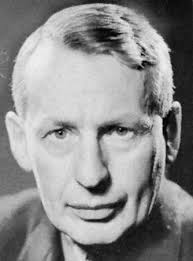
At a critical meeting of the Bacteriological Warfare Sub-Committee (reporting to the Chiefs of Staff) on February 26, 1948, some contradictions in policy, as well as some unresolved differences in opinion, were evident. Sir George Thomson, representing the Imperial College, showed remarkable naivety in his assessment of Soviet ambitions and progress in both atomic weaponry and BW. He recommended sharing intelligence with Soviet scientists, since ‘such discussions might serve a useful purpose by informing the world at large of the true potentialities of BW’. Wansbrough-Jones and Fildes disagreed with him, but thought that, while British industrialists could be trusted not to give away secrets, any international fora should be avoided. The Committee showed confusion over the value of penicillin plant, believing (despite what Fildes said elsewhere) that it could be useful for creating pathogens, but nevertheless deemed it advisable to sell such capabilities to the Russians anyway, on humanitarian and commercial grounds.
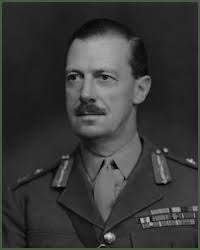
Despite all this, the Committee, showing its familiarity with the impending expansive contract between Glaxo and the Soviet Delegation, wanted the JIC to check with the Americans that they approved the venture, and requested that the Ministry of Supply investigate how the export of plant might be prevented, given that an export license was not required. It was familiar with Borodin’s past movements in the UK and in the USA (where the Soviet Union had already spent $500,000), and it also showed awareness that Borodin was currently trying to acquire a deep culture plant from Bennett and Shears. There was, however, ‘no indication he has any interest in Penicillin than in its curative or prophylactic properties’. Nor was there presumably any doubt about the integrity of the ‘British industrialists’ controlling the project. The Committee was evidently at sea, and it needed a stronger Chairman on the tiller.
In any event, some more successful overtures were apparently made over the next few months. As the Soviet sources indicate, Borodin was working primarily with Florey’s adversary Ernst Chain at this time, and he was formulating ambitious plans for building plant in the Soviet Union. Chain was apparently encouraging such projects quite openly, to the degree that he filed copies of his letters to the Soviet Trade Delegation. On July 2, however, Borodin had turned up at the premises of his earlier mentor, Florey, in Oxford. Florey had contacted Dick White in MI5 to let him know that Borodin was seeking his assistance. John Marriott was despatched to Oxford to speak to Florey, and he returned the same day to give Liddell a positive report. Yet the way in which Borodin’s intentions were articulated is very confusing – partly, perhaps, because of sloppy recording.
Despite his belief that ‘he thinks he will be liquidated if he goes back to Russia’, Borodin was reported to be ‘not in the least apprehensive’. He had apparently thought out everything carefully, and part of the plan seemed to be that he would return to Russia. There is no conditional verb: “He does not think that his return to Russia will [i.e. not ‘would’] have any effect on his family either one way or the other, but is certain that he himself will be liquidated.” That is hardly the mood of someone who declares himself unapprehensive, unless it reflected a death wish to save his family, who would surely suffer if he decided not to return. Borodin also expressed how he wanted to clean house in England, so that there could be no accusation of misappropriation of funds. Was he perhaps concerned about the financial agreement with Chain, and how it might cast suspicions on his role and interest? The report closes: “He has a great deal to tell us and is willing to co-operate to the full.”
Something must have caused his plans to change, as his memoir suggested. Liddell has nothing more to say about Borodin, although his Diaries have an extraordinary vacant patch between July 30 and September 23 – a period for which he simply states that he had been ‘away’.
Ominous Undercurrents
Meanwhile, a possibly shady exploit was carrying on. MI5 had been making some clumsy moves in investigating the suppliers of penicillin-manufacturing material, as Liddell’s diary entry for February 19 attests. The offender was William Skardon, who took time off his interrogation duties to visit the premises of Bennett and Shears, one of the firms involved in the manufacture of penicillin, and to ask questions about industrial mobilisation in Russia. When the proprietors wondered what his game was, he discovered that he had not brought any identification with him. Liddell was introduced to the embarrassing problem, and he was asked to sort it out.
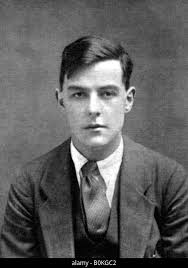
What is astonishing is the communication channel by which Liddell learned about the incident. In all innocence, Liddell records that the news came to him from Anthony Blunt, who himself received it from Guy Burgess, who had been in contact with Goronwy Rees. Rees had some sort of justification, because he was working for his friend Henry Yorke at Bennett and Shears, which worked out of Shoe Lane in London, and specialized in manufacturing brewing and distillation equipment. This might seem an unusual appointment for a Fellow of All Souls, but maybe he simply managed the books, as he had skills in this area, and managed the estates of his illustrious college. In A Chapter of Accidents, Rees describes his less than arduous duties sitting alongside Henry Yorke, a writer he admired, as he led the family firm. In Looking for Nobody, however, Rees’s daughter, Jenny, presents the firm as Pontifex. Pontifex had apparently acquired Bennett and Shears back in 1908: Jenny states that her father worked in George Street, Marylebone in the mornings and walked to the MI6 building at 54, Broadway for his afternoon stint. In any case, when Liddell talked to Rees, the latter thought it had all been a misunderstanding, but he confirmed that the Russians were buying penicillin plant. Whether Rees had been inserted at Bennett and Shears by MI6 is a possibility that has to be raised.
Anthony Blunt, however, had retired from MI5 in 1945. True, Liddell often used him as a ‘consultant’, but what was Blunt doing getting involved with penicillin-manufacturing, and what was Guy Burgess’s role in all this? Apart from hinting that Burgess and Rees were co-operating in some way, which contradicts the way that Rees tried to distance himself from Burgess in the years to come, the events suggest a very conspiratorial network, in which Victor Rothschild, probably in his role as an outspoken member of the BRAB, was probably colluding with the three cronies listed above. Perhaps, with Rees reporting to MI6, it was a canny way of getting a message to Liddell without ruffling feathers at 54, Broadway. Yet for Liddell to be ignorant about Rees’s position at Bennett and Shears, and for him to send in a poorly-prepared snoop to check out what was going on, seems utterly amateurish. Moreover, he would not have been pleased that MI6 was meddling on his turf.
Liddell had a further meeting with Blunt and Rees on March 11, where they discussed penicillin. Why Blunt had to be at the lunch is unexplained, but Liddell took time to explain to Rees that British Intelligence was concerned about the possibility that the Soviets could use penicillin plant to create BW agents. He rather undermined his own advice by stating next that expert judgment (i.e. Fildes) indicated that the project ‘would come to a sticky finish’. How Rees was supposed to process this advice is not clear, and the issue of US manufacturing bans was not overtly mentioned. But the details of the conversations were surely transmitted to the Soviets by Blunt. Liddell must have cast out of his mind the fact that Blunt had been caught red-handed passing over military secrets to the Russians in 1944.
In addition, the actions and motivations of Rees cast further doubts on the story he compiled for himself. If he was indeed upright and loyal in his position at Bennett and Shears, he showed lamentable judgment in confiding in the known subversives Burgess and Blunt about the investigations of Skardon, and the deeds and acquisitions carried out by Borodin. On the other hand, the chain of Rees-Burgess-Blunt-Liddell anticipates the same eerie set of communications that occurred in the summer of 1951, when Burgess and Maclean absconded. Rees’s MI5 Personal File proves that some officers in the service considered that Rees had unlawfully helped the Soviets gain penicillin equipment from the USA, in contravention of the ban, and others have suspected Rees of having been involved in nefarious activities well after his declared change of heart in 1939. These events would tend to reinforce the argument that he was still working closely with Burgess at this time. My analysis is necessarily sketchy. The episodes cry out for the release of more useful archival material – which must surely exist.
Of course the implications are dire. While MI5 was starting to understand the extent of Soviet penetration of the secrets of atomic weaponry, it did not appear to have any idea that a more blatant exercise was being carried out in the field of bacteriological warfare. That was doubly dangerous, since secrets would be passed on about the progress being made in technical research, thus fostering an ability to kick-start the Soviet program. Yet the exposure was more complex. The intelligence would also have included the fact that Chiefs of Staff were not simply considering defensive mechanisms, but also harbouring plans for attacking the Soviet Union with pathogenic substances, which would indubitably have increased Stalin’s fears about aggressive Western intentions. One cannot avoid the suspicion that Rothschild may have been passing on to Burgess some highly confidential material derived from his role on the BRAB.
After the Defection
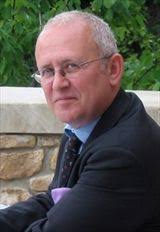
So Borodin dramatically – melodramatically – defected in August 1948. Information about his movements thereafter are very sketchy. Richard Davenport-Hines, the noted historian of the early twentieth-century British intelligentsia, made a bizarre contribution by writing a letter to the Times Literary Supplement after that magazine published a review of One Man in His Time in July of this year. It is a strange, anecdotal account without sources or references, under that quaint literary tradition by which ‘experts’ are allowed to make apparently authoritative statements in the Letters pages, without any fact-checkers interfering, and where the only critics may appear among the magazine’s correspondents. I reproduce the main content of his letter:
The Security Service gave Borodin the codename of Julep after his defection. He was secreted in a safe house called Barrow Elm between Quenington and Hatherop in Gloucestershire. Before Borodin could be established in a new identity in Canada, the former literary editor Goronwy Rees, who was then dividing his working hours between a department in the Secret Intelligence Service run by his friend David Footman and a manufacturing business run by his Friend Henry Yorke, learnt from his official work of the Russian’s defection. He improperly divulged the incident to Yorke, who is best known as the novelist Henry Green. Yorke’s business was involved in a project to supply a penicillin plant to India: he was dissatisfied by its temperamental technical adviser, the Nobel laureate Ernst Chain. Accordingly, in March 1949, Rees approached Guy Liddell, deputy director general of the Security Service, and proposed that Yorke might be allowed to consult or recruit Julep. Footman backed Rees’s proposal in a separate talk with Liddell. This curious initiative seems to have been quashed by the Security Service’s refusal to jeopardize Borodin’s new identity in Canada before he had taken it.

There is enough apparent insider information in this story to give it a gloss of conviction. But where does it come from? [If you perform a Google search on ‘Julep Defector’, the search returns just the TLS letter – a true hapax legomenon.] Moreover, Davenport-Hines displays a bewildering ignorance of the barrage of facts that preceded these events, and he suggests a story that defies all reason. Overall, what use would a defector be if he had immediately to be secreted away to Canada? If Borodin had been nosing around at Bennett and Shears looking for knowledge and techniques, why would Yorke think that he might be a valuable resource to replace the testy but expert Chain? If he needed assistance, and his project was legal, why did he not contact Howard Florey or Paul Fildes, who would presumably have been able to point him in the right direction in a far more security-conscious way? Was it really India or Italy (see below) that was the target for the plant? And why would Footman and Liddell even think twice about the wisdom of hiring Borodin for such a venture? And, if someone as high as Liddell approved the scheme, who was it in MI5 that quashed the initiative? I cannot see Percy Sillitoe interjecting himself sagaciously into the debate.
I suspect that Davenport-Hines may have been given a dodgy dossier at some stage. Moreover, the account of Borodin’s hiding away in leafy Gloucestershire does not hold water. In another diary entry, dated August 9, 1949, Liddell offers his readers the following gem:
There has been a successful conference on Russian affairs at Oxford. We put up a strong team, who apparently acquitted themselves extremely well, which stood out in strong contrast to others present. E. H. Carr, late of the ‘Times’, and also Borodin, gave talks. Outstanding on our side on Far Eastern matters was MacDonald. Guy Burgess was there from the Foreign Office, but was not nearly so good.
In A Chapter of Accidents, Goronwy Rees describes this event as a weekend summer school run by the Foreign Office, where Burgess ‘was chosen to lecture Britain’s representatives, who included members of both MI5 and MI6, on Red China’. So much for protecting Borodin’s new identity, and hiding him away from prying eyes. He is paraded at a conference where he has apparently been openly identified, in a forum bound to provoke questions, and one of his fellow-speakers is Guy Burgess, who has been acquainted with the saga from the Bennett and Shears days. It is difficult to imagine how Borodin could have lasted long after this episode. As a reminder of the Soviets’ need for revenge against traitors at this time, I quote from Tim Spicer’s recent biography of ‘Biffy’ Dunderdale, A Suspicion of Spies, where he describes what happened to the defector Tokaev the previous year, when he and his wife were placed in a safe house protected by MI5 and the Metropolitan Police:
Soon after their arrival, a suspected assassin was detected outside the house which prompted a rapid evacuation to Frittiscombe, a very remote farmhouse at Chillington near Kingsbridge in Devon, then owned by Fred Winterbotham, who had, by this time, retired.
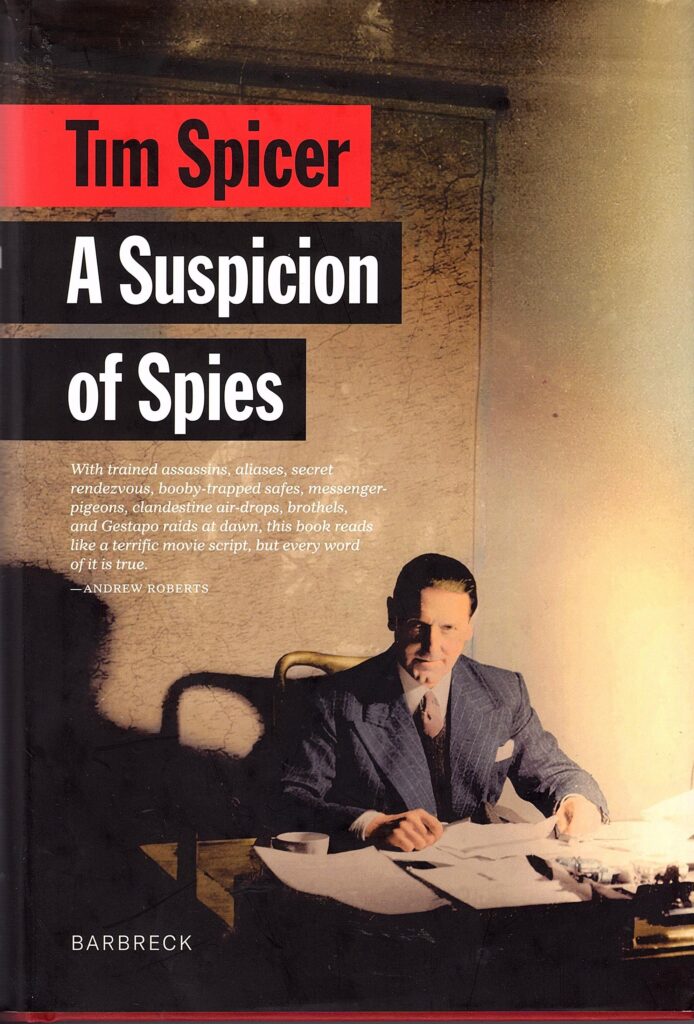
An eerie coda to this episode occurred later in 1948, when Tsarev, another defector who had been recommended by Tokaev, fled from his safe house in Kensington in search of the Soviet Embassy. Spicer writes: “SIS concluded that CAPULET’s change of heart had been prompted by his fear of retribution against his 20-year-old son, Vasili, who was living in Moscow.”
Florey and Chain Redux
The feud between Florey and Chain did not die. On September 30, 1948, Guy Liddell recorded a visit made to him by Florey, accompanied by one Lang Browne. They had come to discuss the case of Dr. Chain, which formulation suggests that a controversy over the Nobel laureate was already alive. The entry reads:
Dr. CHAIN, who had somewhat improperly entered into a contract with the Trade Delegation (Soviet) to sell them information on penicillin, has gone on a years [sic] holiday to Italy. Florey would like to edge him out, but if necessary would like, at some future date, to inform the appropriate authority at Oxford that we could confirm the Professor’s information about the disreputable conduct of Dr. CHAIN. I said that I could see no objection.
It was left that Florey would make fresh contact with MI5 if the necessity arose. The main conclusion from this entry, however, is the fact that MI5 knew about the Chain-Borodin agreement, and disapproved of it, although the ‘somewhat improperly’ is a weak qualification (litotes? irony? or simply inadequate knowledge?). It would seem that the Security Service did not know the extent of what Chain had promised to deliver, but that it was perhaps generally supportive of an exercise designed to lead the Soviets up the garden path.
The impression given here is that Florey is unaware of his rival’s true mission in Italy, and expects him to return to the UK soon, at which time he wants him expelled from the Dunn School of Pathology. Eric Lax reports that Chain had been requested by the British Council in 1947 to give several lectures on penicillin in Rome. His visit was such a success that it prompted the Istituto Superiore di Sanitá to invite him to organize and direct a research centre for chemical microbiology and a penicillin plant. He left Oxford in the summer of 1948 without resigning his post – or informing Florey of his departure. Instead he wrote an awkward letter of apology when he arrived in Rome (Florey had been in London the day he left town!), and regretted their severe falling-out.
Chain, however, had multiple irons in the fire. Mauro Capocci’s article informs us that he had been helping many governments at this time, include the Czechs. In the spring of 1948 (Capocci writes) Chain had been approached by Soviet representatives (i.e. Borodin, Zeifman and Cherniavskii) to set up a fermentation facility, and agreement was signed on July 20. Soon afterwards, namely just before Borodin’s defection, Chain compiled a 100-page report for the Russians: he said that their surface culture method of producing penicillin was antiquated. The British government had by then stopped the Soviets from receiving training from Distillers and Glaxo. Italy was a convenient cover for Chain’s work, as the Communists were still strong in northern Italy at that time, a red takeover having been averted only in April 1948. For some years Chain exercised significant influence behind the Iron Curtain, and he acted as the World Health Organization chairman in the early 1950s.
What is astonishing is the indulgence shown to Chain, the lack of enforcement of bans on selling equipment to the Soviets, and the neglect of close surveillance of Borodin. It suggests that MI5 and the JIC were indeed taken in by his potential as a defector, and that allowing him to deliver some success to his masters in Moscow was part of the plan for maintaining his reputation, and perhaps developing him as a useful agent in place. In that respect, however, the handling of Borodin could well point to a disinformation exercise. Knowing that penicillin-manufacturing techniques could not be safely adapted for creating mass bacteriological agents, the authorities might have allowed Borodin to learn all he could, and pass it on to his masters, in a show of humanitarian generosity. The US ban on selling related equipment could have been an enormous bluff to suggest to the Soviets that the technology was indeed highly strategic and valuable for offensive purposes in BW. Whether Chain was in on the scheme is uncertain, but Florey’s comments would tend to confirm that he was aware of what was going on. The bitterest irony, however, was the fact that Anthony Blunt had learned from Liddell the nature of the scheme, and had surely passed the intelligence on to the Kremlin, which might have given the Soviets a pretext for keeping Borodin on a leash in the United Kingdom.
A Real Defection?
In conclusion, what does my analysis indicate about the reality of Borodin’s defection? Recall the following (apparent) facts:
* Borodin was sought out as a possible defector more out of propaganda value than for the reward of his knowledge, since he had already disclosed all he knew to the Americans.
* Borodin wrote an unnecessarily flamboyant and destructive letter to the Soviet Embassy, which would immediately have jeopardized his chances of surviving in exile.
* His letter was compiled the day after he made his decision to defect, when he had no guaranteed refuge in Britain.
* Borodin’s appearance in Oxford in 1949 would have broken all the rules about keeping defectors in seclusion.
* Borodin’s defection occurred at exactly the same time that Chain was armed to undertake penicillin development work in Italy and behind the Iron Curtain.
* Despite the alarms expressed by MI5 and Borodin himself about possible harm to his family, Borodin went ahead with the defection.
* Nothing reliable about Borodin has surfaced anywhere since, and his memoir published in 1955 was shrouded in mystery, and lacked any context.
* Soviet archives represent him as an ‘unperson’, recognizing him only in the 2000s, but relegating him to an insignificant role, and undermining Soviet excellence.
I thus consider three scenarios: 1) A legitimate defection; 2) A modified defection that went wrong; and 3) A fake defection engineered by the Soviets.
- If we take Borodin’s account at face value, the scientist, shocked by the new atmosphere at the Embassy, and fearful of being executed if he returned to Moscow, applied to the British for asylum, and was accepted, leaving his family members to their fate. He was never heard of again (apart from the possible appearance in Oxford) until he published his memoirs, in English, in 1955, and revealed the brazen declaration of his defiant letter of August 27 to Ambassador Zarubin. He was regarded as a pariah by Moscow: nothing reliable about his life and whereabouts after 1948 can be ascertained.
This scenario contains so many contradictions and paradoxes that it is hard to take seriously. MI5 and the JIC had been considering trying to persuade Borodin’s to defect for months, but they had expressed concern about his family. In early July (i.e. several weeks before his alleged decision), Borodin had contacted Professor Florey, and discussed defection, and his possible return to the Soviet Union. He was thus not a sudden asylum-seeker, but he had practically no value as a defector, since he had passed on all he knew, and his main role as a functionary was to gather information. One might expect an account of one of Sudoplatov’s squads attempts to assassinate Borodin – an inevitable outcome if the facts are true – but no record of such has appeared. Borodin’s presence in Oxford would surely have energized the hunt.
2. If MI5 and the JIC had become excited about the prospect of enticing Borodin to defect, they might have originally seen it as a propaganda coup. On reflection, however, they may have asked themselves how they would exploit him once he defected, as he would have been of little utility. At that stage, they might have considered trying to use him as an ‘agent in place’, having him return to the Soviet Union, and then provide them with constant updates on the state of the Russians’ work on bacteriological warfare (rather in the manner that Oleg Penkovsky was used.) Such a strategy would have overcome their humanitarian concerns about Borodin’s family, and the conversations in early July hint at such an arrangement, even though Borodin fears for his life.
While this scenario reflects in principle a more practical strategy for exploiting Borodin, there is no solid evidence for its existence. Liddell’s Diaries never explicitly indicate such a tactic. And it would encounter some severe obstacles. Once Borodin returned to the Soviet Union (and his declarations concerning his probable execution express a grim reality, since Stalin still regarded citizens who had spent too much time abroad as dangerous influences, and there was a deadly purge still going on), it was highly unlikely that he would be allowed to return to the United Kingdom, and attempting to contact him to have intelligence passed over would have been futile and fatal. If Borodin had indeed been tempted to consider such a course of action, he either talked MI5 out of it, or MI5 itself must have undergone a quick re-think.
3. Could the whole defection have been a set-up by the Soviets? If Borodin received an overture from the British, he probably reported it to his party bosses. They had their man in place, who had delivered the goods by stealing secrets, and now was conspiring with Chain to construct a detailed program for them to follow. If Borodin stayed in the United Kingdom, he could keep in touch with progress made in bacteriological warfare (and they knew that Britain’s intentions were serious, from what they learned from Burgess and Blunt). Thus the MVD might have encouraged Borodin to negotiate, and stall, while he was executing his assignment with Chain at Oxford. If his utility ran out, or his access to fresh intelligence were prevented, there would come a time when he could be safely exfiltrated, and re-united with his family. If Borodin did indeed escape later, that would explain the complete silence thrown over the affair by the embarrassed British authorities, as the propaganda exercise would have been thrown back in their faces. Yet Borodin, as someone who was on the blacklist for maligning Soviet science, might have experienced the cellars of the Lubyanka soon after his return to the homeland. Mikoyan may well have suspected (learning from his spies in the UK) that Borodin was about to make a serious defection, and he might even have wondered whether the scientist had made a secret deal on the side to benefit from the large payments to be made to Chain. Thus Borodin may have taken fright, and decided that he needed to break away completely.
This seems to me the likeliest explanation. I have not seen any evidence that the Soviets boasted about such a coup, suggesting that Borodin may have double-crossed them. But what about the inflammatory letter to the Ambassador? I suspect it was never issued, as it would have been far too clumsy a ruse for MI5 to be taken in, and the Security Service would have even more dramatically pulled their horns in, and made Borodin utterly useless to the adversary. I believe it far more likely that the letter was compiled to accompany Borodin’s memoir, at a time when he may no longer have been in this world. I expressed my doubts earlier about Borodin’s ability to write such a memoir in English at that time. He probably wrote it in Russian, and left it with MI5, who had it translated. When the book was published (after Stalin’s death), an MI5 officer probably wrote the letters and had them inserted as a last fling, with a pinch of authenticity, to publish what many Soviet functionaries truly thought about the Communist regime. After all, the standalone letters appear as the totality of the file FO 1093/552. Why would that be? Only the ruse now looks hopelessly naive.
If I imagined I might find some sort of closure in this research activity, I was severely disillusioned. Yet I believe I have uncovered enough facts to set the hares running. A large number of questions remains to be investigated, and I hope that this report finds the right persons to help answer them.
(Recent Commonplace entries can be see here.)

Dear Mr. Percy,
On Nikolai Borodin, Mr. Riehle did mention him, and also Tokaev. with
the observation that they were both supposedly still alive in 1979.
If you google Riehle and defectors and Massachusetts, you should get
the PDF. Once there, scroll down to page 47. It is an MIT document.
Thank you for another incredibly interesting account.
More, please, and continued success.
Thank you, Fernando, for your kind words. I am so glad you posted this.
I have just sent a message to Kevin Riehle asking him for his evidence about Borodin in 1979. (I was aware that Tokaev was still alive then, and have written about him elsewhere.)
Tony.
I contacted Kevin Riehle, and he very promptly replied that he could not recall where that datum came from.
I took the opportunity to encourage him to read the full article, and asked especially for his comments on Davenport-Hines’s anecdotes, and my analysis of the circumstances of the defection. (Riehle is the author of ‘Soviet Defectors’, and, while he focusses on defectors employed by intelligence units, he should be interested in material such as this.)
He has not (yet) responded to my message, which is disappointing.
Tony.